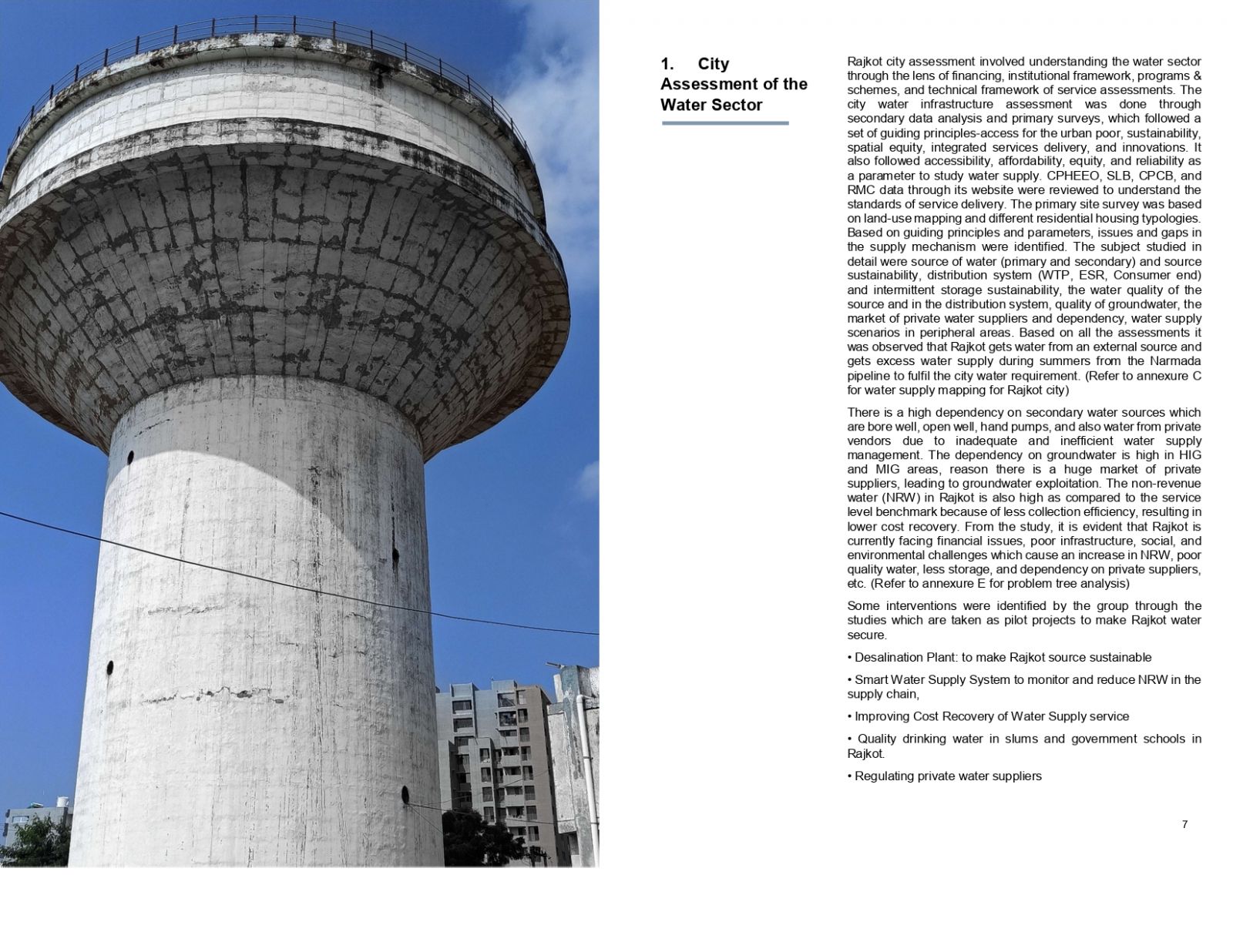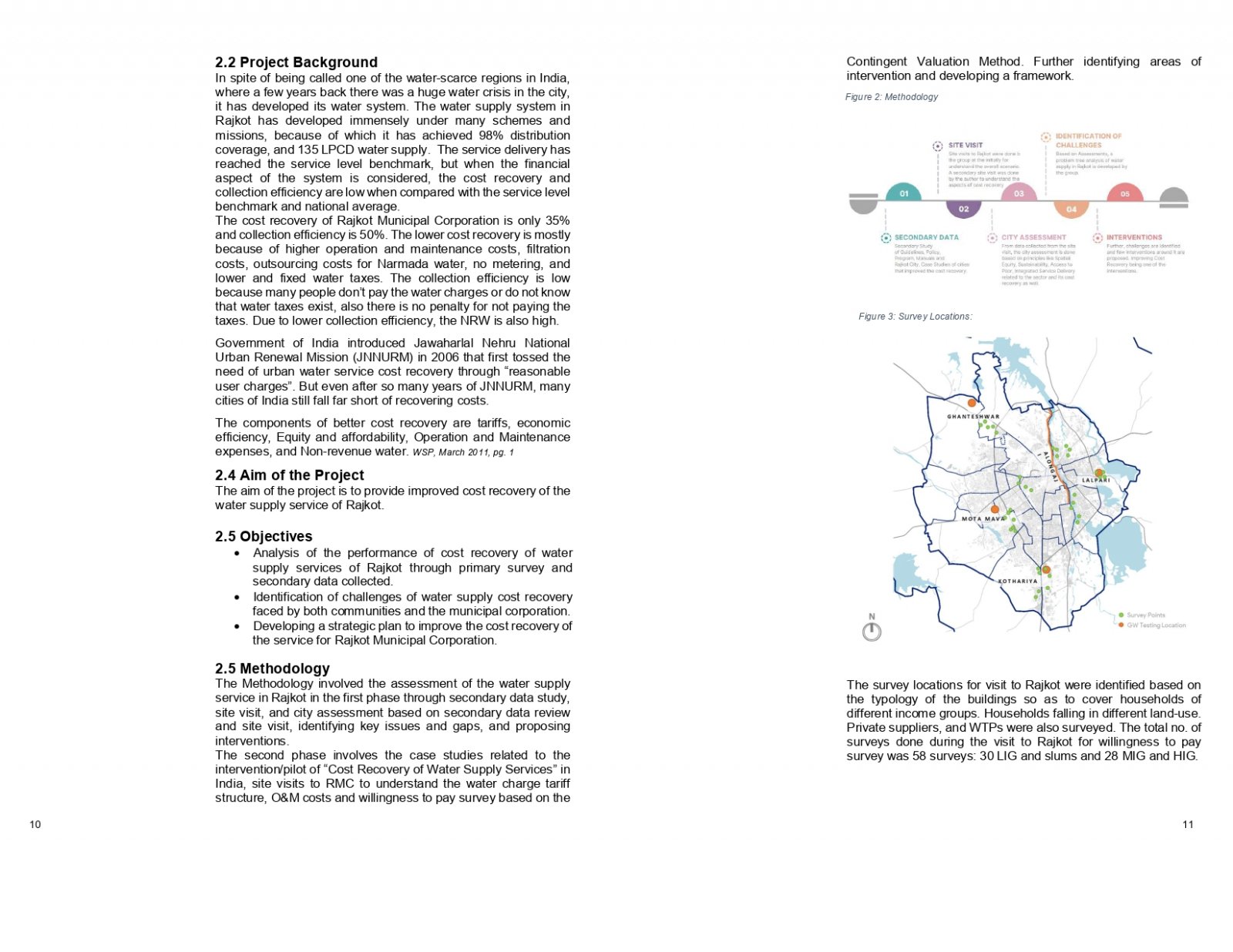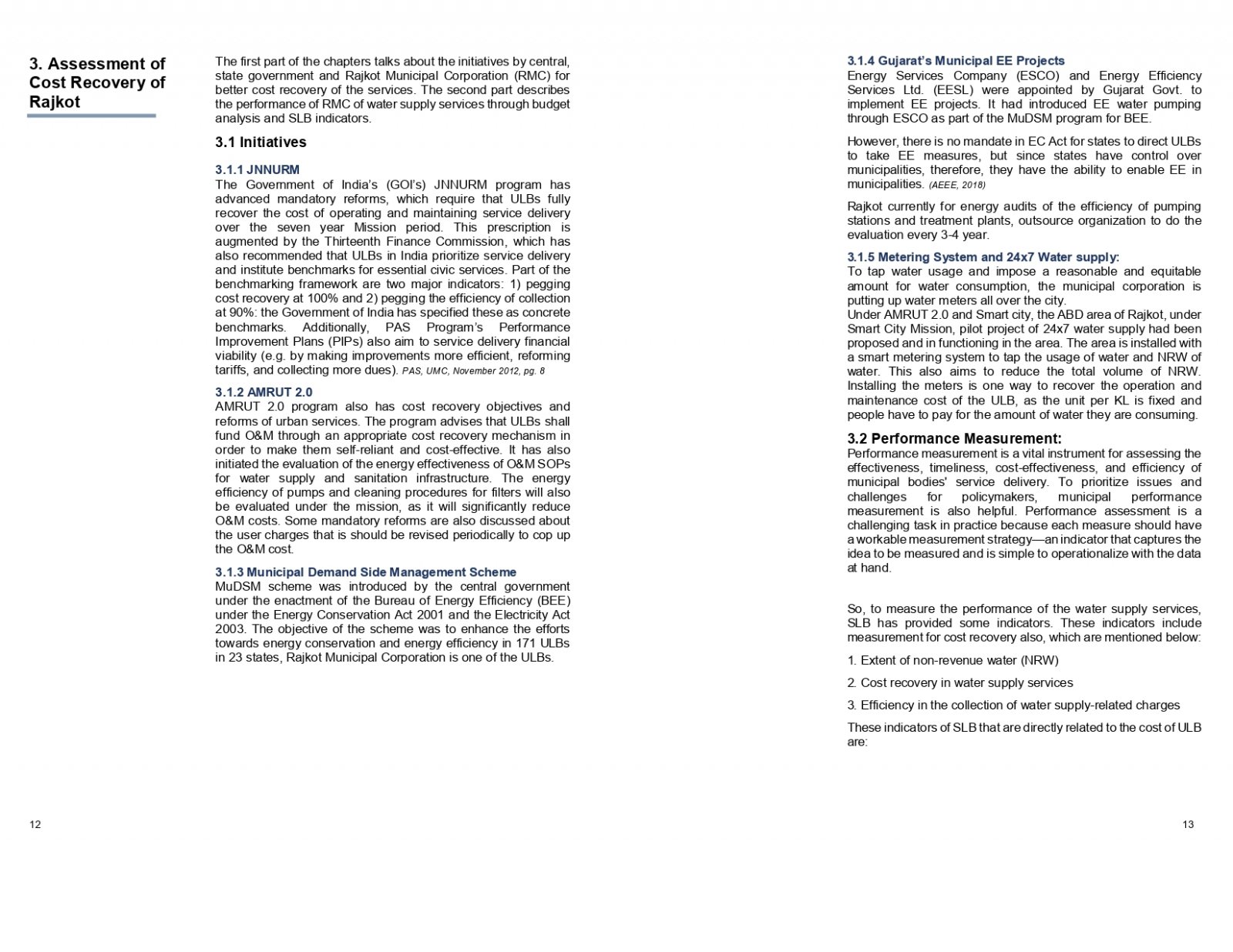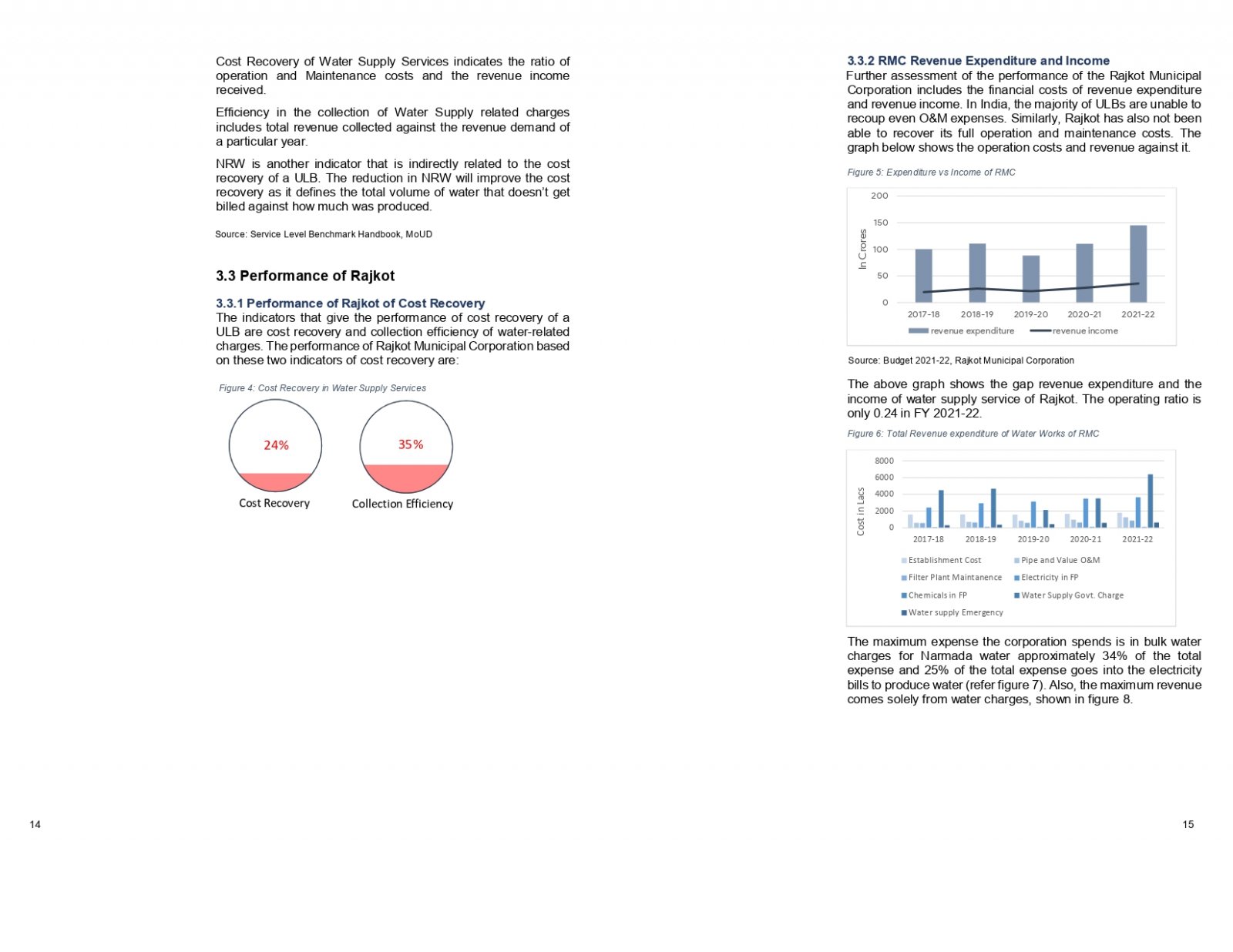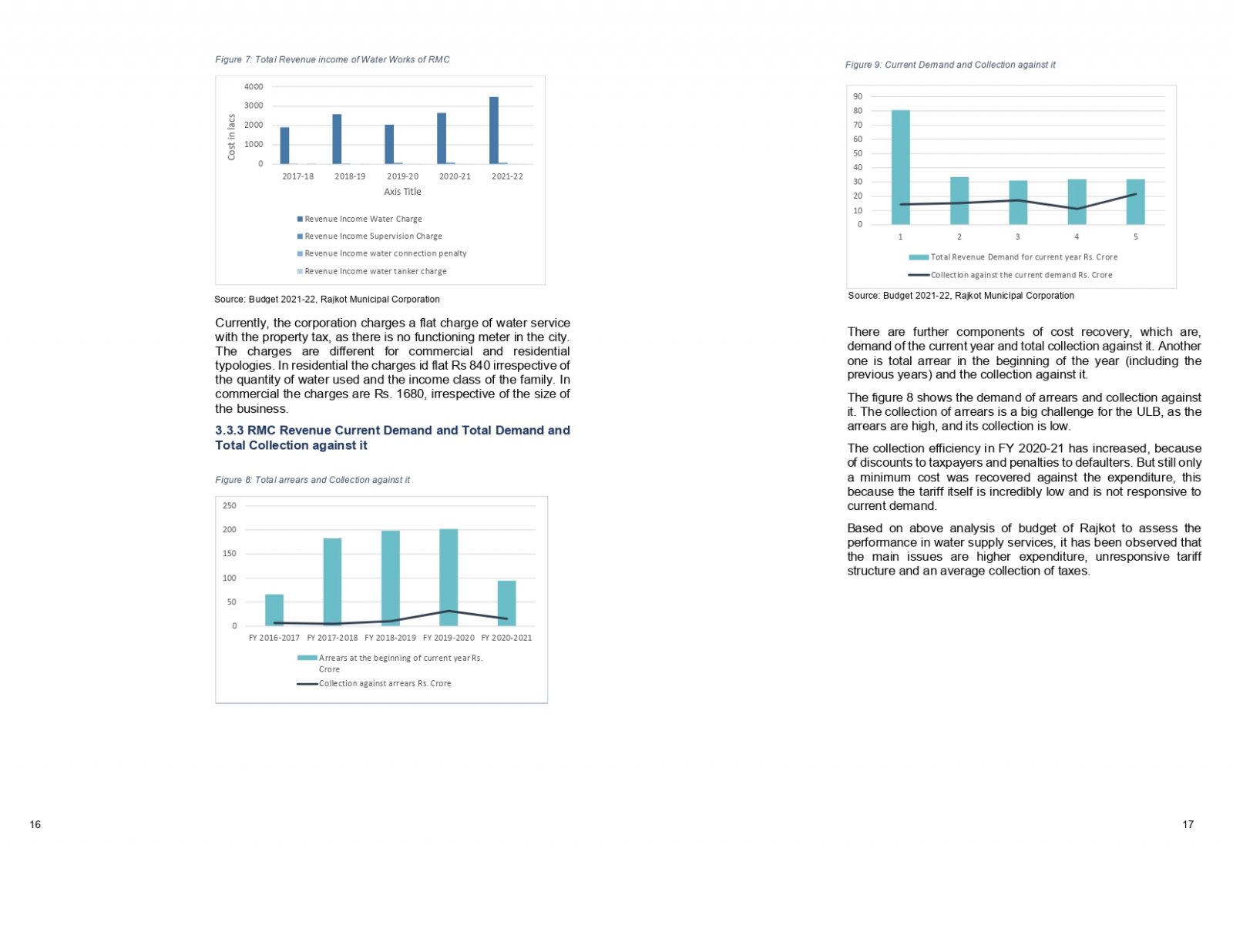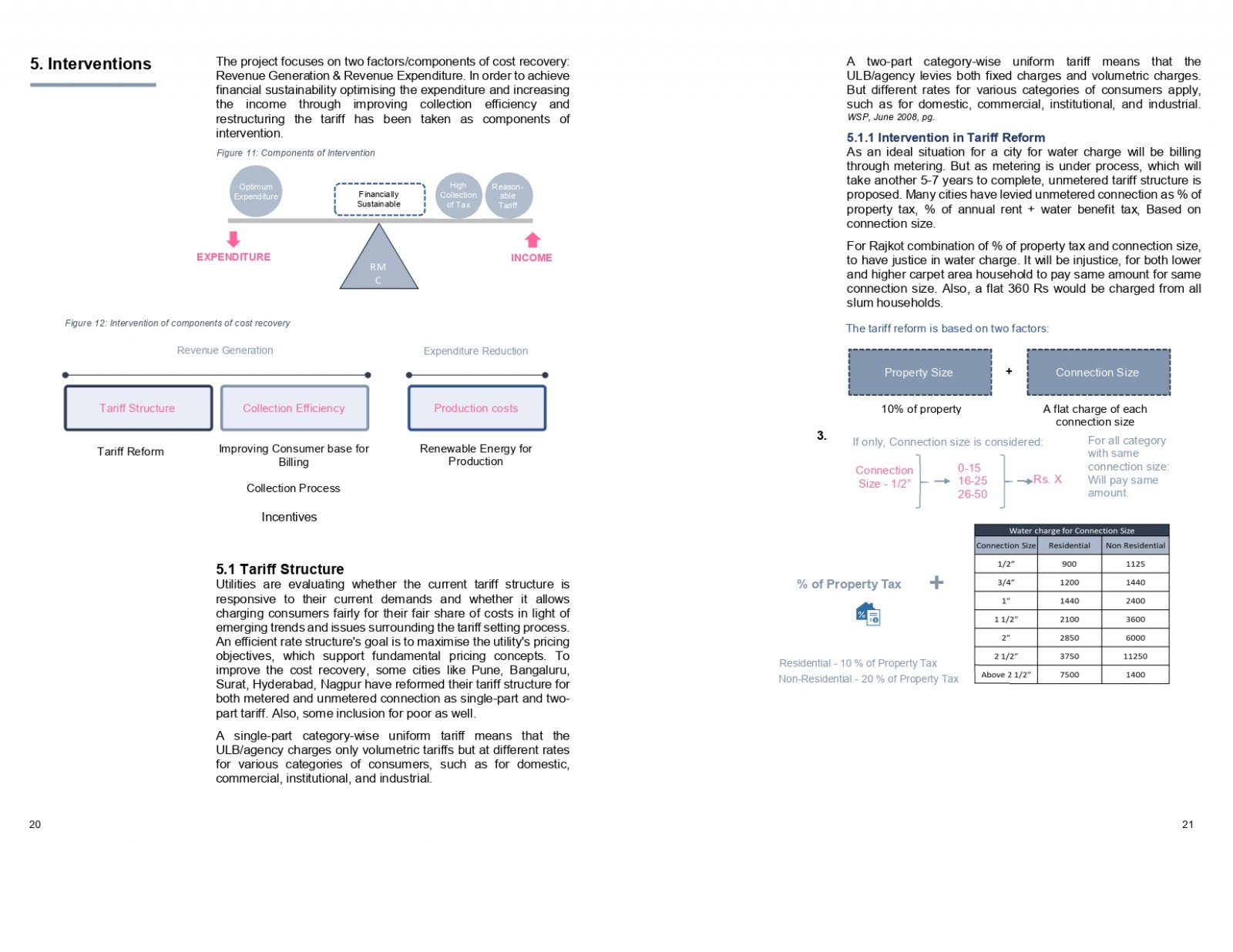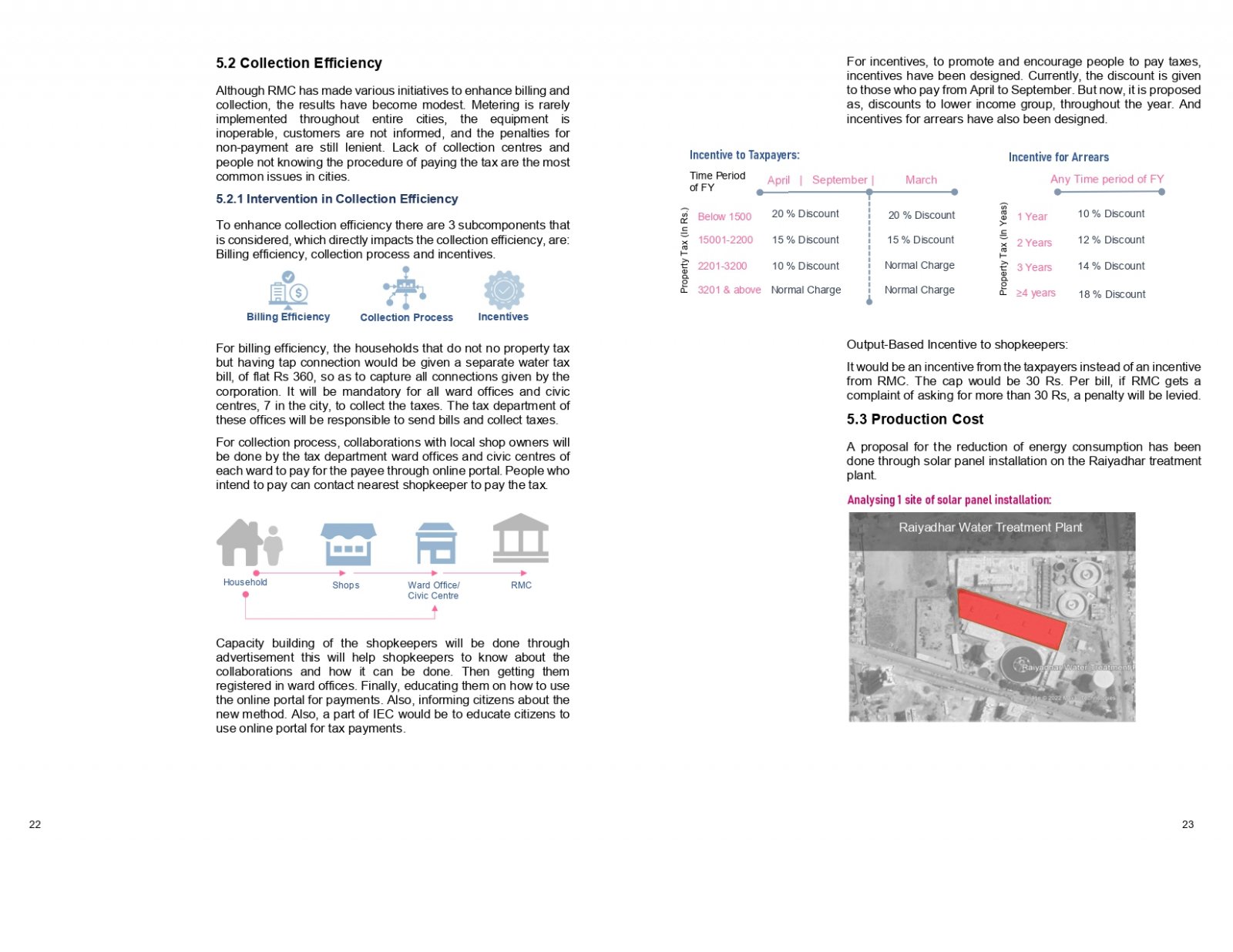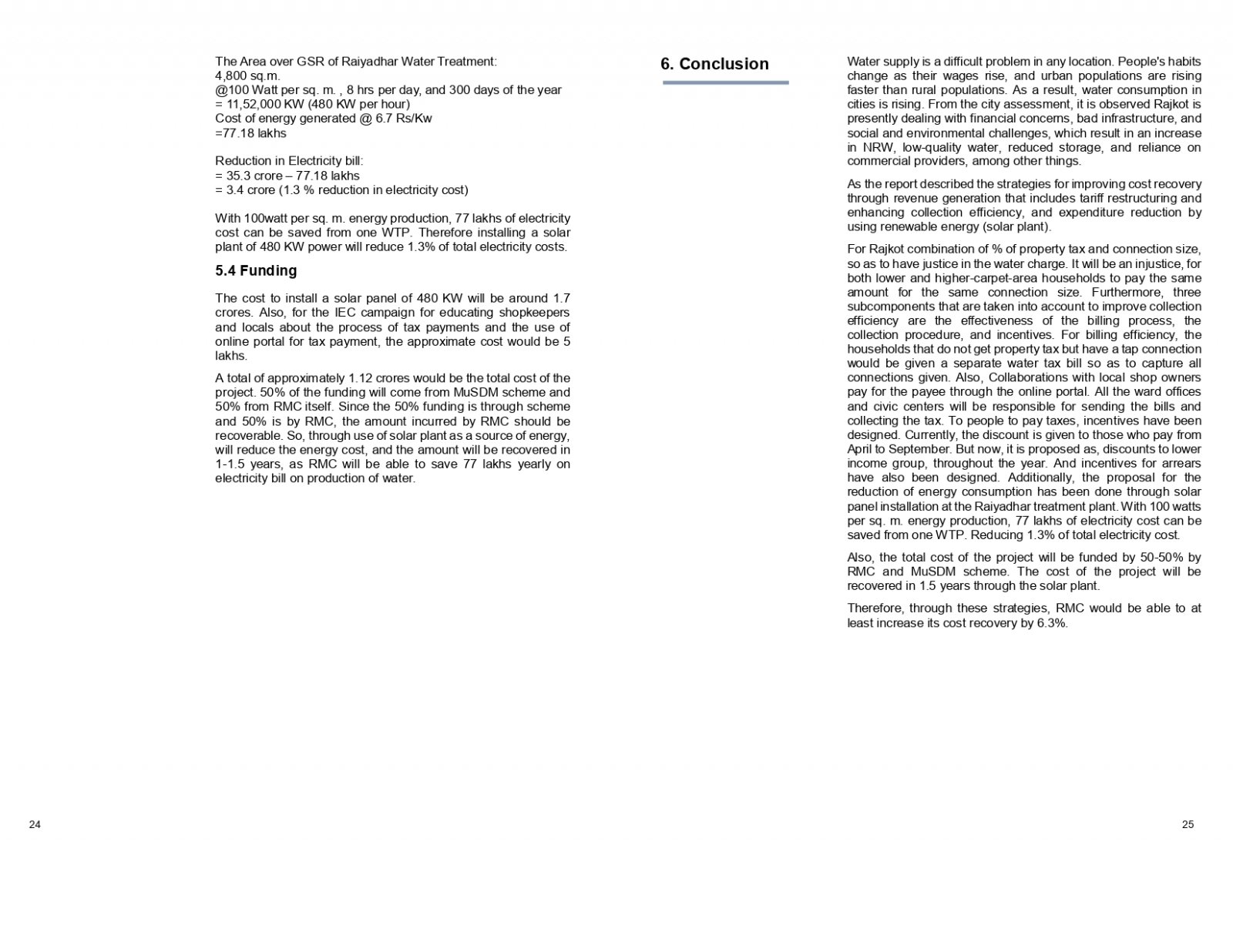- Student ADITI PRIYA
- Code PUI21011
- Faculty Planning
- Tutor/s Mona Iyer,Meera Mehta
- TA Nirali Shah
Water supply is a difficult problem in any location. People's habits change as their wages rise, and urban populations are rising faster than rural populations. As a result, water consumption in cities is rising. Water difficulties in almost all Indian cities may deteriorate due to poor water quality caused by surface and groundwater contamination. The treatment and distribution of clean water to customers involves two cost components: capital charges and operation and maintenance costs. Additionally, if an expansion is required, additional capital costs may be incurred. The widespread assumption that water is "free" and that delivering it should continue to be a free social service persists. Some missions and schemes by central and state government like JnNURM, AMRUT, MuSDM, Gujarat’s Municipal EE Projects have also mentioned for mandatory user charge reforms, and has also talked about improving collection efficiency and energy consumption. The ULBs should prioritise the recovery of water supply services. Only a charge that fully represents the costs will inspire individuals to value the service they receive. Another compelling environmental argument in favour of cost recovery is that subsidies encourage excessive usage of ecologically sensitive resources. A lack of sufficient data sets for water delivery systems, public willingness to pay for the service, political involvement, and so on are only a few of the challenges. Therefore, the aim of the project is to provide improved cost recovery of the water supply service of Rajkot. The project focuses on two cost recovery factors/components: revenue generation and revenue expenditure. To achieve financial sustainability, intervention components include optimizing spending and generating income through improved collection efficiency and tariff reform.
